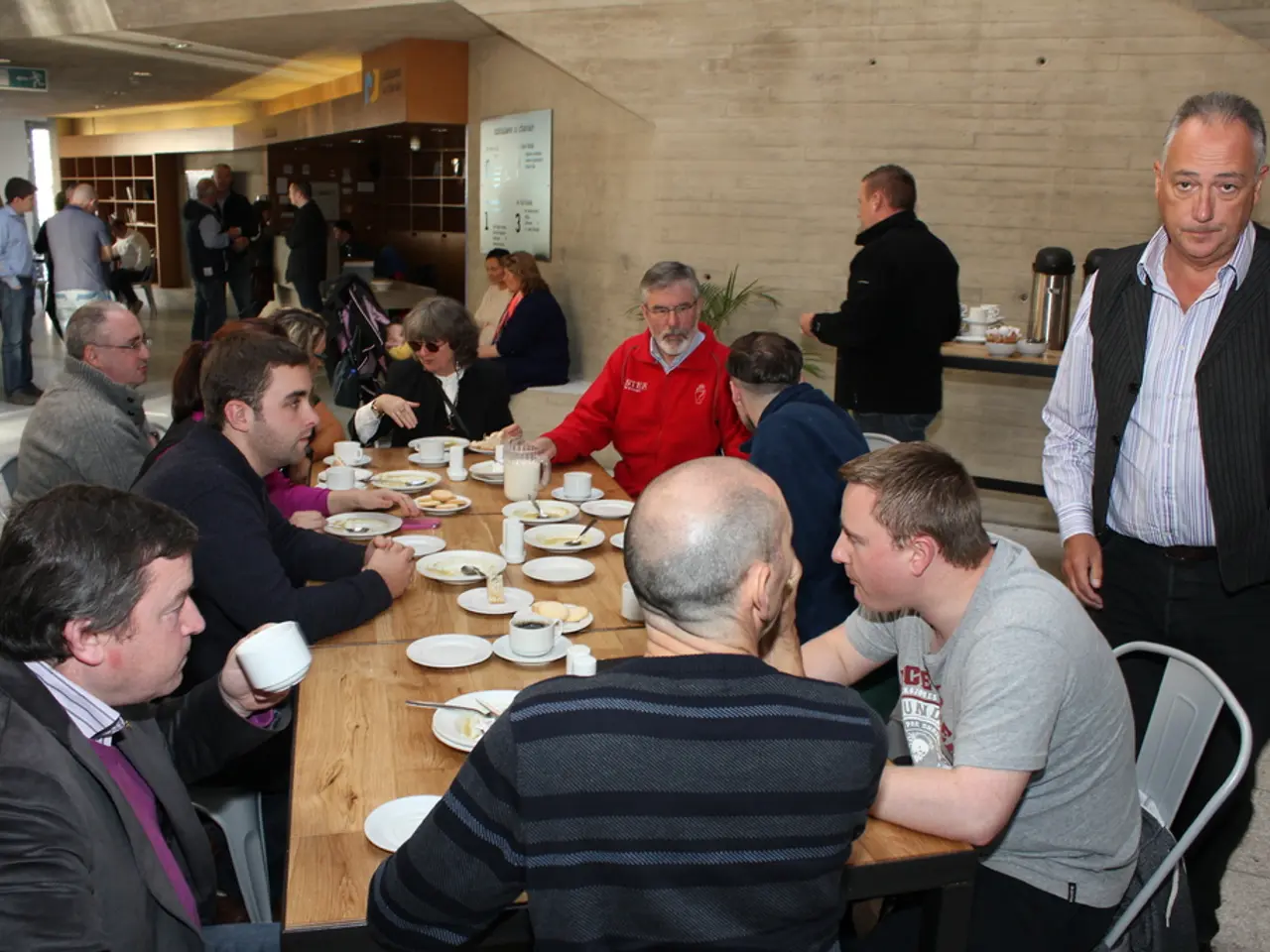Professors and Coffee Meetings: A Great Opportunity for Students to Engage
At Princeton University, students have the unique opportunity to engage with world-renowned professors both inside and outside the classroom. Here's a guide on how to make the most of these interactions.
Princeton's Home Dining program allows students to invite professors for a coffee or a meal, covered by the University. This is just one of the many ways students can connect with their professors on a more personal level.
The Junior Paper (JP) process is another opportune time for a one-on-one meeting with a professor. A blog post written by Mahya Fazel-Zarandi, the Natural Sciences Correspondent, provides valuable guidance on how to schedule such a meeting.
After meeting with a professor, it's essential to send a follow-up email expressing gratitude for their time. This small act can help a student stand out as a respectful and committed individual, conveying the importance of the meeting.
Many Princeton professors are globally recognised for their contributions in their respective fields. Their experiences extend beyond what is shared in lectures, offering students a wealth of life wisdom and career insights.
Professors may also offer positions in their labs or connect students with valuable resources. They can provide insights into different career paths based on their own experiences, making these interactions invaluable for students.
The blog post highlights the global impact of Princeton professors in the context of research-based courses. Students can build closer relationships with their professors through direct mentorship programs, research internships, and participation in faculty engagement events.
Campus initiatives like faculty/staff-student engagement programs encourage social interactions such as lunches or discussions outside class. Attending presentations and events where faculty showcase their research and mentoring efforts also provides opportunities for students to discuss career development and life lessons with professors.
Beyond structured programs, students can enhance these relationships by communicating their interests, seeking advice during office hours, and participating actively in classes to demonstrate genuine curiosity and commitment.
A "Take your professor to dinner" event organized by a residential college can help students invite professors for a more personal interaction. TigerResearch, a university resource, offers insights into Princeton professors' research interests, making it easier for students to find common ground.
The blog post encourages students to reach out to their favourite professors for a friendly conversation. Remember, students at Princeton come from various backgrounds with diverse experiences, making each professor-student interaction a unique and enriching experience.
In conclusion, building stronger relationships with Princeton professors can provide students with career insights, life wisdom, and valuable connections. By actively engaging in faculty-mentored programs, internships, and campus initiatives, students can make the most of their time at Princeton.
"Engaging in the Junior Paper process offers a chance for a one-on-one meeting with a professor, contributing to personal growth and education-and-self-development by delving deeper into specific subjects or career paths."
"Leveraging these one-on-one meetings and personal interactions with professors, students can tap into their wealth of experience, gain insights into different career paths, and fostering personal-growth through learning from accomplished individuals."




